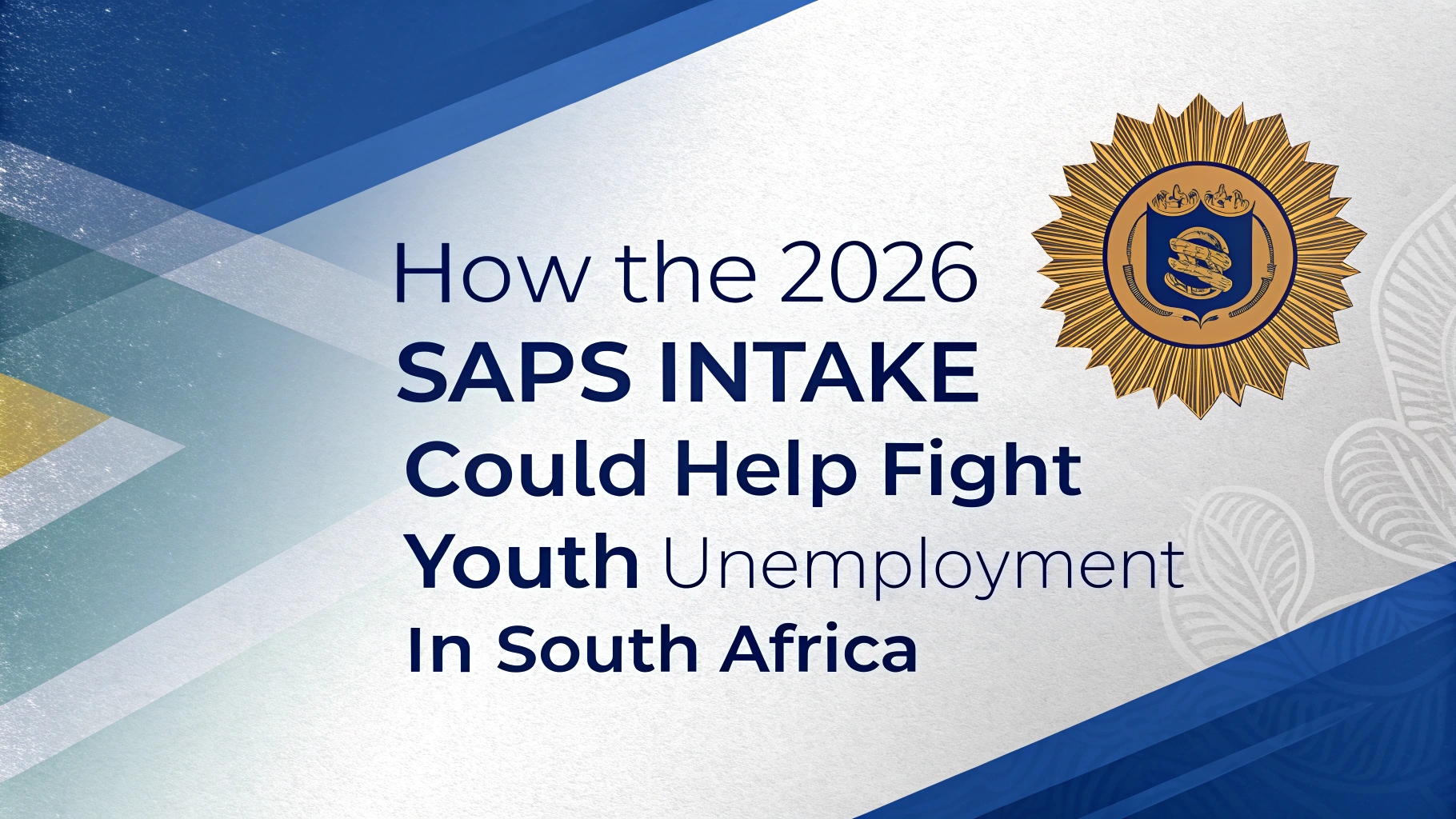How the 2026 SAPS Intake Could Help Fight Youth Unemployment in South Africa

South Africa is facing a serious youth unemployment crisis, with millions of young people struggling to find stable and meaningful employment. In response to this challenge, the South African Police Service (SAPS) is launching its 2026 police trainee intake, offering 5,500 paid training positions to eligible youth across the country.
But beyond law enforcement, what role can this recruitment drive play in reducing youth unemployment?
Let’s explore how the SAPS 2026 intake could provide real solutions for South Africa’s unemployed youth.
Youth Unemployment in South Africa: A National Crisis
According to recent statistics, over 60% of South Africans aged 15–24 are unemployed. The situation is especially dire for young people who have completed matric but lack work experience or post-school training opportunities.
The SAPS 2026 intake comes at a time when the country urgently needs job creation, skills development, and structured pathways to employment.
What the SAPS 2026 Intake Offers
The 2026 SAPS trainee programme is more than a job—it’s a structured skills development opportunity. Here’s what selected trainees can expect:
-
A monthly stipend during the 12-month Basic Police Development Learning Programme (BPDLP)
-
Accredited training in crime prevention, legal studies, community policing, and firearms use
-
Professional work experience in law enforcement
-
Long-term employment prospects after successful completion
This gives young people access to financial support, training, and a clear career path—something many unemployed youth desperately need.
Building Skills That Go Beyond Policing
Even if a trainee doesn’t remain in the police force long-term, the SAPS programme equips them with transferable skills that are valuable in many sectors:
-
Leadership and discipline
-
Problem-solving and critical thinking
-
Public communication and teamwork
-
Physical fitness and self-management
-
Legal and administrative knowledge
These skills improve employability in both the public and private sectors.
Supporting Rural and Disadvantaged Youth
For the first time, the SAPS 2026 recruitment process will be completely online, which opens new doors for youth in rural or underserved communities. As long as candidates have access to an internet-enabled device, they can apply—no expensive travel or printing needed.
This digital shift helps level the playing field and gives previously excluded applicants a better shot at success.
Government Investment in Youth Employment
The SAPS recruitment is part of a broader government plan backed by R22 billion over the next three years to increase police visibility and public safety. But it also serves another critical purpose: creating entry-level job opportunities for young people without tertiary education.
Each trainee post reduces unemployment by one and may support an entire household—making the impact even greater at a community level.
Why This Matters for the Future
Fighting crime and fighting youth unemployment go hand in hand. When young people are unemployed and feel hopeless, they are more vulnerable to criminal activity or social unrest.
The SAPS intake provides:
-
Purpose
-
Skills
-
Income
-
A chance to contribute positively to society
By giving young South Africans a stake in their country’s future, SAPS can help restore dignity and hope in communities across the nation.
Conclusion
The 2026 SAPS trainee intake is more than just a recruitment drive—it’s an opportunity to empower South Africa’s youth, reduce unemployment, and build a safer, more inclusive society. With 5,500 training positions available and a new online application system, thousands of young people could finally access the chance they’ve been waiting for.
If you're a young South African who qualifies, don’t miss this opportunity to serve, learn, and grow.